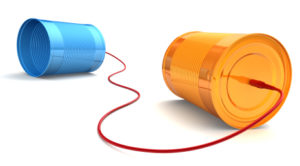 Virtually every conflict in every relationship, both personal and professional, could have been avoided (or certainly lessened) had the communication been more effective. Electronic methods of communication add yet another lawyer to the complication.
Virtually every conflict in every relationship, both personal and professional, could have been avoided (or certainly lessened) had the communication been more effective. Electronic methods of communication add yet another lawyer to the complication.
We talk about being a better listener, which is certainly a good start. But I submit that more problems will be solved when each of us becomes a better communicator.
Good communication is hard, as exemplified by the zillions of examples of miscommunication. It requires constant awareness and practice, and a talent for mastering both effective listening and effective transmitting. Here are some tips to help you improve:
Ask questions. It’s a given that we learn more when we ask questions than when we are speaking. So ask a lot, then focus on actively listening to the responses and processing the information.
Dig deeper. If the questions you ask do not fully satisfy your need, ask more questions. Often that means getting beyond the “what’ and on to the “why.” The deeper you dig, the better an understanding you will gain.
If in doubt, find out. Don’t take anything for granted. If you are unsure about a procedure, a client expectation or a policy – don’t assume. The only stupid questions are the ones that are never asked.
Pick only the best and most meaningful words. Don’t waste others’ time with a lot of back-story and unimportant details. A good communicator can discern what needs to be said, and what doesn’t.
Don’t keep your knowledge inside. Share the information you have with others, in case they don’t take the initiative to ask. Discern what information will be valuable and productive, and then relate it concisely.
Emojis aren’t always a good substitute. Written communication has and always will risk misunderstanding without the cues of tone and facial expression. Emojis can sometimes add what’s missing, but even they can leave your intention misunderstood. Recognize that some things are better communicated voice-to-voice, or face-to-face.
Like anything else, being a good communicator takes thought and practice. But the time and frustrations you will save by communicating better will make your efforts well worth it.


Leave a Reply